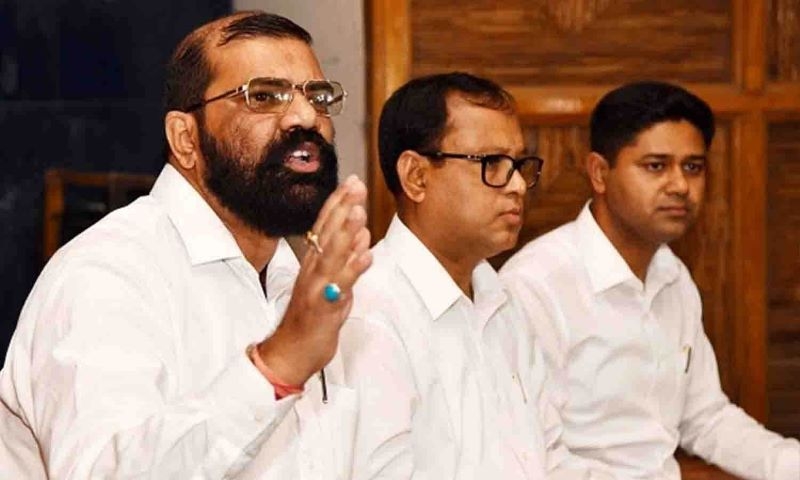AASU releases report on Clause 6 of Assam Accord

AASU President Dipanka Nath, General Secretary Lurinjyoti Gogoi and Chief Adviser Samujjal Bhattacherjya addressing the press persons at Guwahati on Tuesday
The said Clause 6 of the Assam Accord signed between the State Government, the AASU and the Central Government under the initiative of the then Prime Minister Rajiv Gandhi, provided for constitutional, legislative and administrative safeguards to “protect, preserve and promote the cultural, social, linguistic identity and heritage of the Assamese people”.
Addressing a media conference on Tuesday here AASU President Dipanka Nath, General Secretary Lurinjyoti Gogoi and Chief Adviser Samujjal Bhattacherjya said they had no option but to release the 170-page report of the committee the government was sitting idle on it and the people have right to know its contents as it concerned them.
One of the significant recommendations of the committee is the definition of “Assamese” people as anyone living in the state prior to January 1, 1951. Several attempts made in the past to define an Assamese, including one by the former Speaker, late Pranab Gogoi, were futile.
The AASU trio said they had waited for over five months for the Centre to act on the report or make it public. The 14-member committee, led by Justice (retd) Biplab Kumar Sarma, had submitted the report to state chief minister Sarbananda Sonowal on February 25 in the presence of his cabinet colleagues.
The MHA had constituted the committee in July 2019 to suggest measures within six months on how to implement the clause.
Sonowal handed over the report to Union home minister Amit Shah on March 20.
Apart from the implementation of the recommendations within two years of its submission, the high-powered committee has mooted the setting up of an appropriate body to monitor the process and reconcile any constitutional or legal challenges that may arise in their implementation.
“The body should preferably be headed by a retired judge of Supreme Court/ High Court, with representatives from the Union home ministry, the Assam government, and AASU. It should meet at least once every three months,” the report said.
The recommendations:
The definition of Assamese people for the specific purpose of implementation of Clause 6 shall be construed as including all citizens of India who are part of Assamese community, residing in the territory of Assam on or before January 1, 1951, or any indigenous tribal community of Assam residing in the territory of Assam on or before January 1, 1951, or any other indigenous community of Assam residing in Assam on or before January 1, 1951, or all other citizens of India residing in Assam on or before January 1, 1951, and descendants of the above categories.
80 to 100 percent of the seats allotted to Assam in Parliament (14 in Lok Sabha and seven in Rajya Sabha) be reserved for the “Assamese people”, as well as 80 to 100 percent reservation in the Assam Legislative Assembly and local bodies, inclusive of pre-existing reservations.
Creation of Upper House (Legislative Council), with all seats reserved for “Assamese people”.
Adequate measures for introducing inner-line permit (document for residents of other states to enter Assam).
80 to 100 percent of Group C and D level posts in central government/semi-central government/central PSUs/ private sector including under PPP mode be reserved for “Assamese people”. Similarly, 80 to 100 percent of jobs under state government and state undertakings and 70 to 100 percent of vacancies in private partnerships, including PPP mode, should be reserved for them.
Assamese language shall continue to be the official language of Assam as per the provisions of the Assam Official Language Act, 1960, throughout the state with appropriate provisions for use of local languages in Barak Valley, the hill districts, and the Bodoland Territorial Area Districts. All the indigenous languages of Assam must be protected and promoted irrespective of the number of speakers.
Within hours of AASU releasing the report, Sonowal said the government was “committed” to ensuring implementation of Clause 6 in letter and spirit but disclosing the report of the committee “without giving any timeframe is very unfortunate”.
